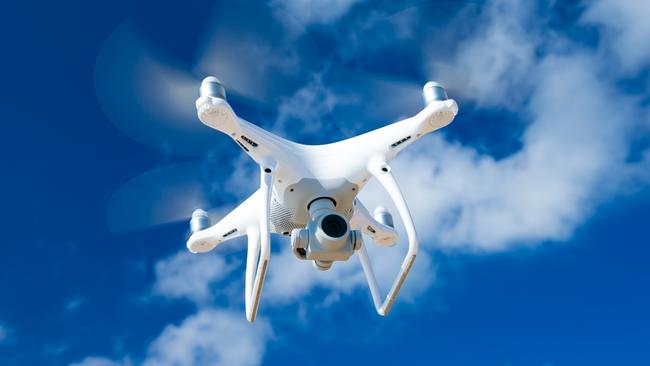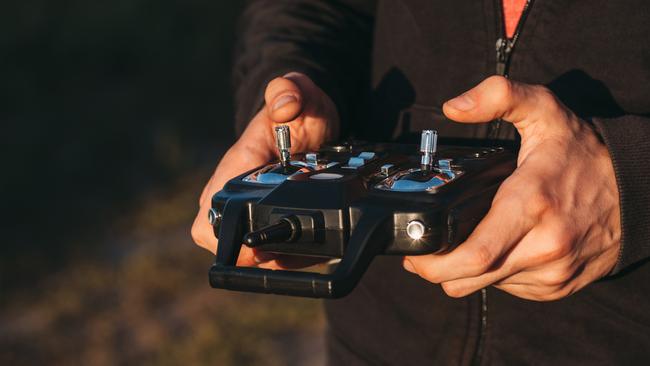‘You can literally just walk into a job’: Demand, remuneration high for drone pilots
Employers are being forced to offer high wages, even for entry-level roles, for workers trained in a career that’s in demand across several industries.
Careers
Don't miss out on the headlines from Careers. Followed categories will be added to My News.
Drone licences that can be obtained with just a week of training are opening doors to careers with six-figure salaries.
With the range of applications for unmanned aerial vehicles growing exponentially, employers are being forced to offer high wages for even entry-level roles as they struggle to find enough workers to meet demand.
“(The UAV sector) is quite well remunerated these days,’’ says Aviassist founder and managing director Ross Anderson.
“You’re probably looking at between $75,000 to $150,000 for someone who has come straight out of flight school with just a little bit of experience. In some chief pilot roles, they’re paying 200 grand.
“And you can literally just walk into a job. If you’re a good person and willing to learn, you will have no problems (finding work) at all.’’

Stand-alone career
Drone qualifications used to be an upskilling option for workers looking to take on additional duties but are now a career pathway in their own right, Anderson says.
“Five years ago, you used to be a surveyor first and you would just use the drone as part of being a surveyor,’’ he says.
“Nowadays, stand-alone drone pilot jobs are a dime a dozen.
“And that’s the beauty of it – (a drone pilot career) is not stuck in aviation land, it covers all industries. Obviously, submariners is not there. But given most things have a touchpoint with drones, the sectors you can work in are actually pretty impressive.’’
In many cases, specialist knowledge of the industry is no longer required, Anderson says, with other workers called upon to analyse any data collected by the drone pilot.
Where’s the money?
Government jobs are the among the most lucrative for drone pilots. But small private companies also pay well, says Anderson, noting the mining, agriculture and surveying sectors are especially renowned for their high wages.
He says employers are “screaming out’’ for pilots able to operate “beyond the visual line of sight’’ – that is, to fly drones outside their direct visual range, which requires special approval from aviation regulator CASA. And they will pay accordingly.
Global Drone Solutions chief executive officer Mahmood Hussein says well-paid opportunities also exist within tourism and hospitality, emergency services and the trades sector.
Five-day courses to obtain a remote pilot licence typically cost about $3000, Hussein says, adding it is not uncommon for drone pilots to receive multiple job offers immediately after they finish their training.
“We’re training 50 pilots a month in our company, but we still can’t keep up (with demand from employers). Because the applications of drones, and the companies that use them, is growing tremendously,” Hussein says.
“There’ll be lots of budding entrepreneurs out there whose eyes will light up when they see just what can be done with drones. The sky is literally the limit.”
Drones are also instrumental within real estate marketing, however Hussein warns the high number of drone pilots seeking to take property images has resulted in much lower rates of pay.

Love your job
Sean Mattheisz spent two decades working in telecommunications before getting his drone pilot licence and changing careers.
With a keen interest in photography, Mattheisz initially hoped to get into aerial real estate imagery. But after discovering it was “probably not one of the best ways to make a living”, he moved into inspection work instead.
Now a chief remote pilot with Air Inspect Australia, which inspects, surveys and maps assets in the civil and construction sectors, Mattheisz says the number of opportunities available for drone pilots makes him excited for his future.
“I wake up now and I love what I do. I wasn’t getting that feeling in my previous career, to the point I just didn’t want to go to work,” he says.
“There’s always going to be a need for drone pilots although … the technology involved (in drones) is always evolving so it’s very hard to forecast what’s coming up next.”
He believes those with an affinity towards problem solving, as well as technological buffs, would find working as a drone pilot immensely rewarding.
“We call it the drone industry but what we are really doing is collecting data – so if you have a logical mind and if you are someone that wants to be challenged, especially with IT, then this is something you are really going to enjoy,” Mattheisz says.
Sectors that rely on drones
• Mining – mineral stockpiles can be measured in hours, rather than days, through the use drones. Drones are also used for surveying work and environmental impact research
• Tourism and hospitality – marketing campaigns for hotels, resorts and tour operators rely on drone footage and photography
• Emergency services – drones are used to fly above areas ravaged by cyclones, earthquakes and floods to assess damage and provide much needed supplies
• Trades – solar panel output, leaking roofs and guttering and other height inspections are safely carried out with drones
• Beach safety – drones are used for shark detection and to assist with rescue operations
• Agriculture – aerial inspections, using drones with special sensors, provide farmers with information about crop health
• Real estate – drones capture aerial footage of properties to show new investment opportunities or to create marketing videos
Source: Mahmood Hussein, Global Drone Solutions
Originally published as ‘You can literally just walk into a job’: Demand, remuneration high for drone pilots


